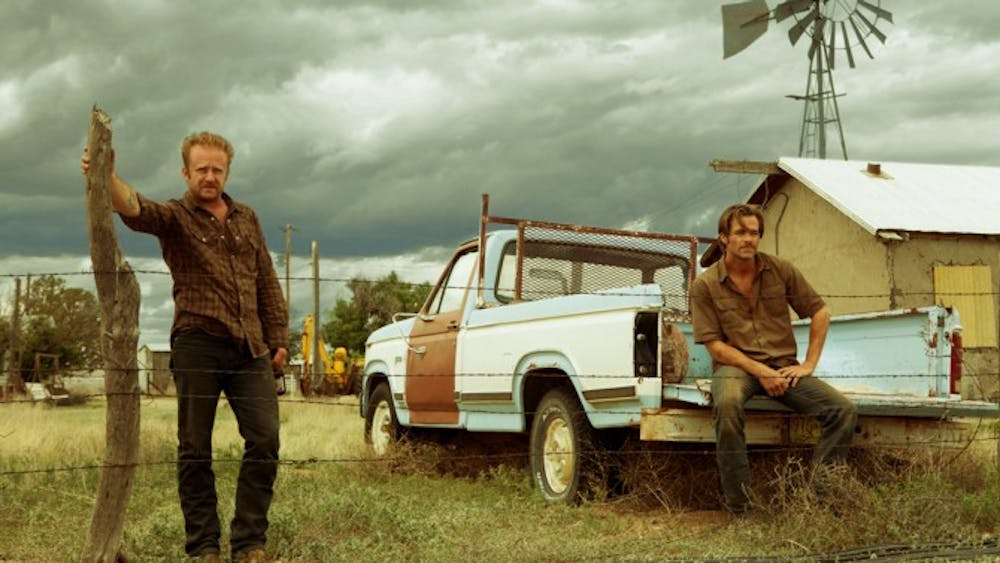David Mackenzie’s Hell or High Water is, at the surface, a simple movie with simple tastes, much like the characters and world at the heart of its narrative. Taking place in the present-day final wild frontier of the U.S., rural west Texas, it’s a story of a pair of bank robbers and the two law enforcers responsible for catching them. But underneath the basic premise, the film — dare I say, one of the top two or three pictures of the year — is deceptively profound, an honest and thoughtful portrayal of the small town American struggle that dates back to the origins of American literature, echoing the sentiments put forth by Steinbeck and Faulkner nearly a century prior.
Behind the camera, Mackenzie and cinematographer Giles Nuttgens push along the film at a Texan-esque slow pace, controlling the action on screen and never in its 102-minute runtime straying into superfluous material. Between the intensely claustrophobic bank heists, the drawn-out scenes of meaningful character development and the lengthy landscape shots of downtrodden and economically-depressed small towns, no frame of the movie is wasted. Clearly borrowing inspiration from the Coen brothers and their recent neo-westerns, No Country for Old Men (2007) and True Grit (2010), Mackenzie uses a methodical approach to both build tension with incredible effectiveness and allow viewers to account for the smallest details of southwestern life, conservative politics, closed-mindedness, hard-working attitudes and all.
Starring A-list Hollywood stars Chris Pine and Jeff Bridges, as well as lesser known actors Ben Foster and Gil Birmingham, Hell or High Water is a largely performance-driven film. The chemistry between the two bank-robbing brothers (Pine and Foster) and the two detectives on their trail (Bridges and Birmingham) is felt throughout the movie’s quieter scenes, and pushes it from the realm of merely well-made to also thematically and emotionally powerful. While the tension and brutal violence were largely products of Mackenzie’s skillful direction, the enduring impact of the film is found in the understated struggle of its characters — from Marcus (Bridges) coming to terms with his inevitable retirement, to Toby’s (Pine) determination to give his children the wealthy life he never had — which is largely a product of the dialogue and performances from the main and supporting cast.
Going above and beyond the mere two-hour long piece of forgettable entertainment that has become the modern standard in Hollywood, Hell or High Water is exactly the kind of underrepresented film that keeps optimism for the industry alive. It’s smart, creative, original, uniquely minimalist — the rare movie that makes you think for a while afterwards, both about the moral ambiguity of the characters’ actions and about the larger meaning of the plot as a whole. More than that, though, it's a quintessentially American experience, sharing a timeless tale of yearning, of familial love, of loss and grief and tragedy that is at the heart of what once defined the final frontier.
Four and one half stars (out of five).






